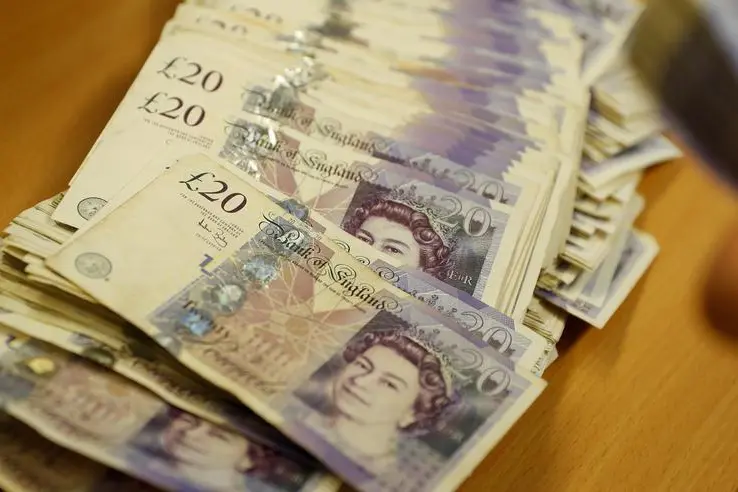PHOTO
Sterling edged lower on Friday, but still hovered close to a two-and-a-half-year peak against the dollar, as increasing risk appetite following China's stimulus plan and monetary policy divergence between the Bank of England and other major central banks provided some support.
Sterling was 0.25% lower at $1.33815 but remained close to this week's $1.3434, its highest level since February 2022.
The pound usually appreciates when investors go for riskier assets such as equities, which jumped on Thursday.
It was set for its second consecutive week of gains against the dollar.
In the pair, the fresh highs are in part justified by the policy rate differential between Britain and the U.S., ING analyst Francesco Pesole said in a note.
He flagged, however, that sterling/dollar may start to look expensive soon as expectations for a 50bp Fed cut may be misplaced.
Against the euro, the pound held steady at 0.83385, set for its third consecutive week of gains.
Finance minister Rachel Reeves is setting out her first budget on Oct. 30.
"I do think that we could be faced with a little bit of a rocky road as we approach the budget in the UK," Jane Foley, senior forex strategist at Rabobank, said, due to speculation that it could bring an increase in capital gains tax and maybe in employers' contributions for national insurance, both of which "won't be very friendly to investors or entrepreneurs".
British Prime Minister Keir Starmer said on Tuesday the cost of fixing shortfalls in the public finances would be shared fairly and that all his government's policies would still be properly funded.
However, the market is "fairly relaxed" with the idea that the BoE is only likely to cut interest rates on a quarterly basis, Foley said, providing some support to sterling and allowing it to possibly continue to outperform the euro.
Stickier-than-expected British inflation has fed expectations for a more gradual BoE easing cycle.
The euro has lost about 3.8% against the pound so far this year, with the pair dropping below the 0.8320 level earlier this week.
"We probably need some inflation surprise in the eurozone to prevent 0.8300 to be tested soon," Pesole said.
(Reporting by Linda Pasquini; Editing by Alex Richardson)





















